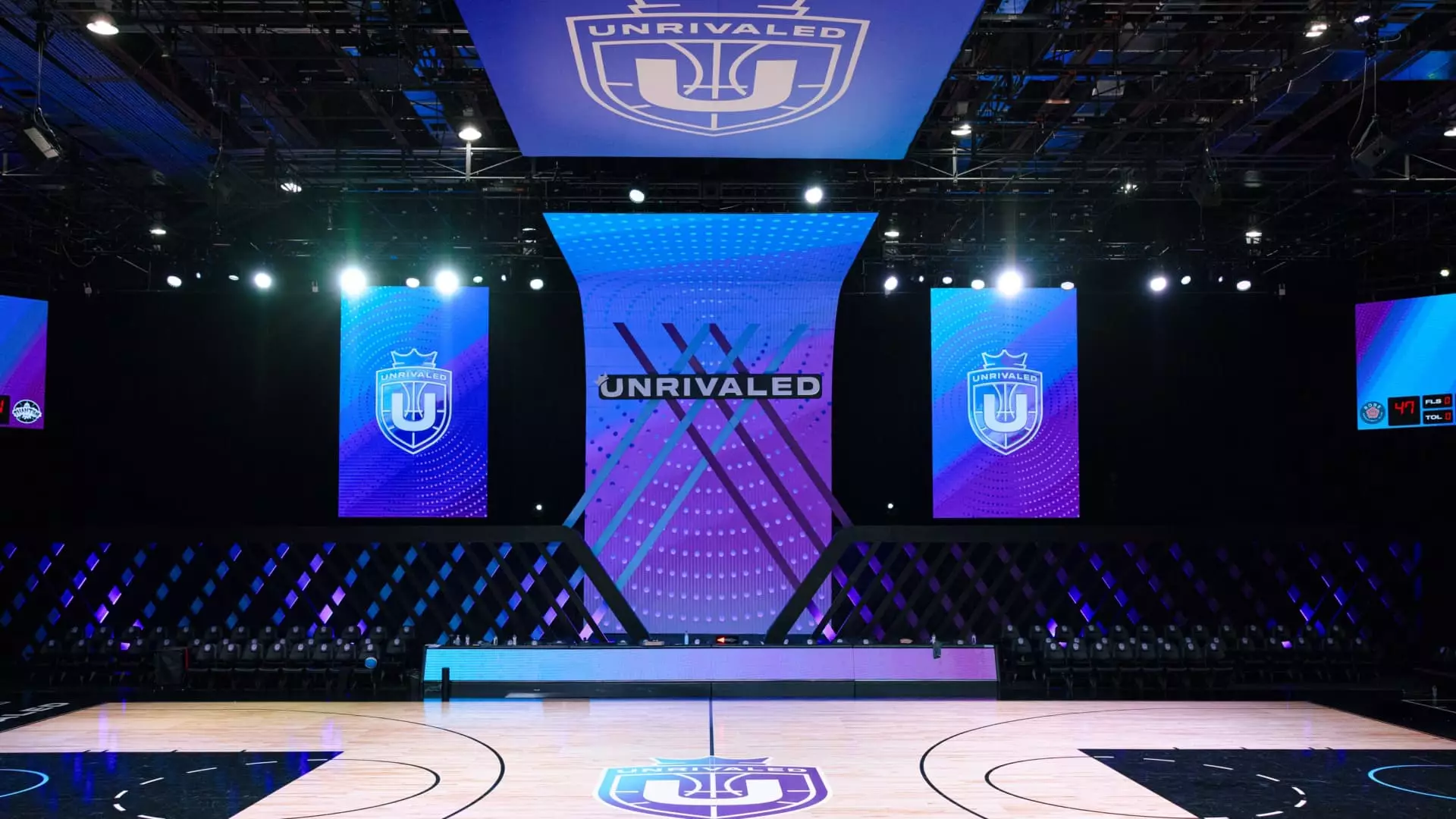Women’s professional basketball has entered an exhilarating new phase with the launch of Unrivaled, a groundbreaking 3-on-3 league aimed at elevating the visibility and prominence of female athletes in sports. Co-founded by WNBA stars Napheesa Collier and Breanna Stewart, the league debuts with a host of significant sponsorship deals and substantial funding, setting the stage for a transformative journey in women’s sports. Unlike its traditional counterpart, the WNBA, Unrivaled presents a rapid-paced and engaging format that resonates with modern audiences, while simultaneously filling a crucial void in the basketball calendar.
The emergence of Unrivaled comes at a critical juncture for women in sports, where visibility and revenue generation lag behind male counterparts. Collier’s assertion that the league embodies “immense potential” is substantiated by its impressive funding of $35 million and partnerships with well-known brands like Apple, State Farm, and Sephora. This kind of financial backing is paramount for the sustainability and growth of any new league, particularly in a landscape where women’s sports are historically underfunded.
Moreover, the league is not merely a philanthropic endeavor; it is a calculated business opportunity aimed at making waves in the sports market. Collier emphasizes that stakeholders are investing because they see both the promising horizon for women’s sports and the potential for profitability. This approach marks a critical departure from traditional viewing models that often equate women’s sports with charity, instead positioning them as an exciting investment opportunity.
What distinguishes Unrivaled from existing leagues is its 3-on-3 format, which is both fast-paced and strategically diverse. Games last one hour, contrasting with the more drawn-out timelines of typical 5-on-5 basketball. The league kicks off with six teams competing over two months, culminating in a playoff tournament set for March 17. This compressed season not only allows for fan engagement but also complements the WNBA calendar, which runs during a different time of the year.
Moreover, the format appeals to a younger demographic, as noted by sports consultant Lee Berke. With viewership being critical for the success of any sports league, Unrivaled must successfully capture the attention of both male and female fans. This demographic focus is vital for expanding the league’s audience base throughout the season.
Unrivaled is poised to offer players salaries that surpass those in the current WNBA structure. With a total salary pool of over $8 million, the average compensation per player reaches approximately $242,000. This significant pay increase comes coupled with equity and revenue shares, which can be rarity in professional sports, particularly in women’s leagues. Such financial incentives not only attract top-tier players but also signal a shift toward more equitable treatment of female athletes in professional settings.
The establishment of this league directly addresses the challenges faced by WNBA players, many of whom seek overseas opportunities to supplement their income. Unrivaled offers an attractive alternative, extending their professional careers while playing closer to home. As noted by Alex Bazzell, the league’s infrastructure intends to “fill a gap” in the existing basketball calendar, thereby professionalizing women’s sports in unprecedented ways.
Unrivaled’s launch arrives amid a surge in interest in women’s basketball, spurred by a compelling WNBA season characterized by overt records in viewership and attendance. This boom contributes to an increasing recognition for women’s sports as a viable and entertaining alternative, not a supplementary option. The integration of a new franchise, along with the elevation of the WNBA Finals to a best-of-seven series, showcases the momentum building within women’s basketball and hints at what may be possible for Unrivaled.
The involvement of high-profile investors, including athletes like Giannis Antetokounmpo and Coco Gauff, illustrates a collective acknowledgment of the potential for growth within women’s sports. Their support amplifies the message that women’s leagues are not merely a secondary consideration but deserving of investment and attention equal to men’s games.
With Unrivaled set to captivate basketball fans on TNT Sports this season, it serves as more than just another sports league; it is a significant milestone for women athletes who have been seeking acknowledgment and parity for far too long. As Collier aptly observes, the league’s success might influence the entire landscape of women’s sports, elevating overseas contracts and enhancing visibility domestically.
As Unrivaled embarks on its journey, it opens doors not just for professional basketball players, but for future generations of female athletes. If leveraged wisely, the enthusiasm and financial backing currently at play could lead to an enduring transformation in the perception and reality of women’s sports, fostering an environment enriched by talent, competitiveness, and, ultimately, profitability. As this new chapter unfolds, we can only hope it heralds a broadened horizon for female athletes everywhere.

